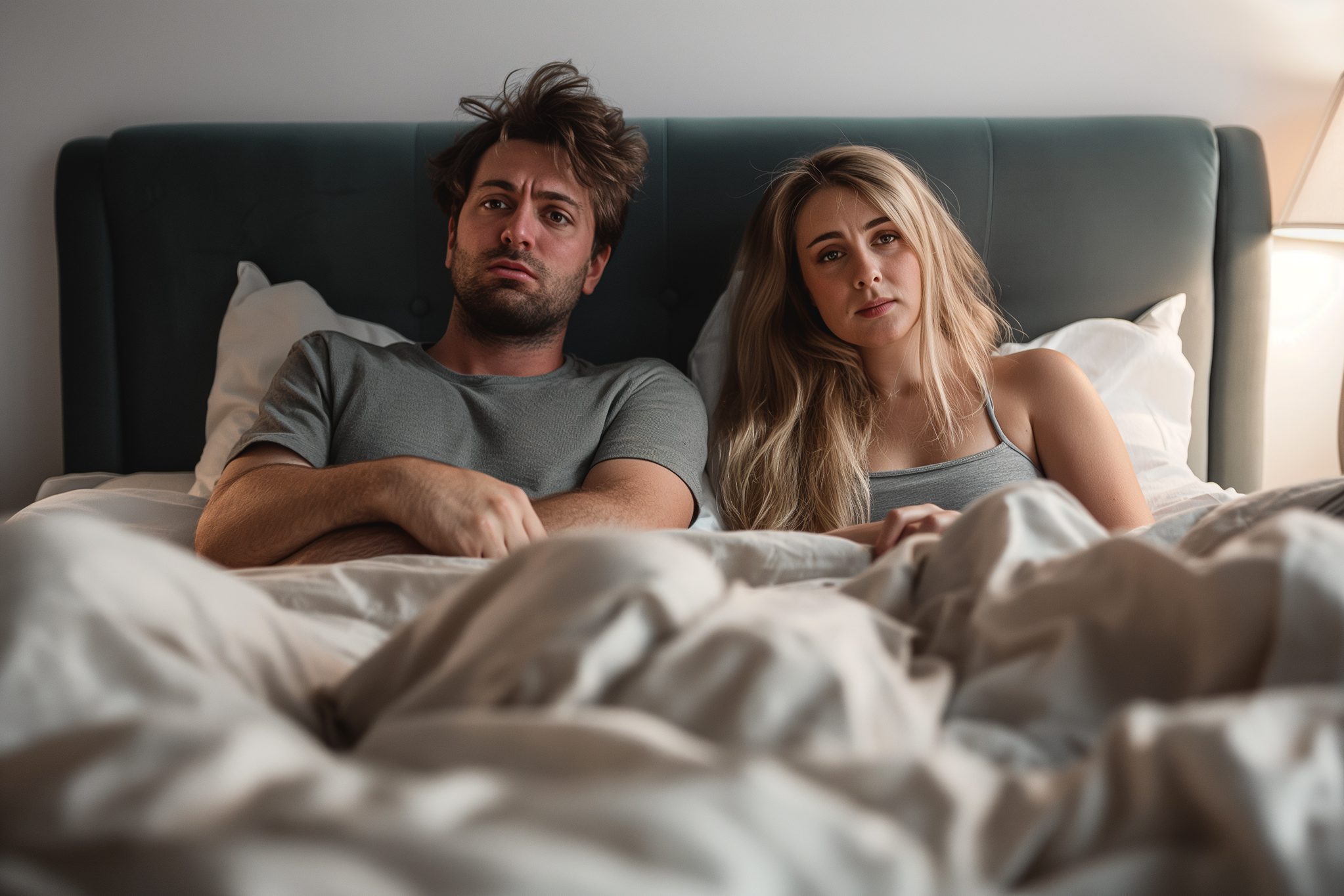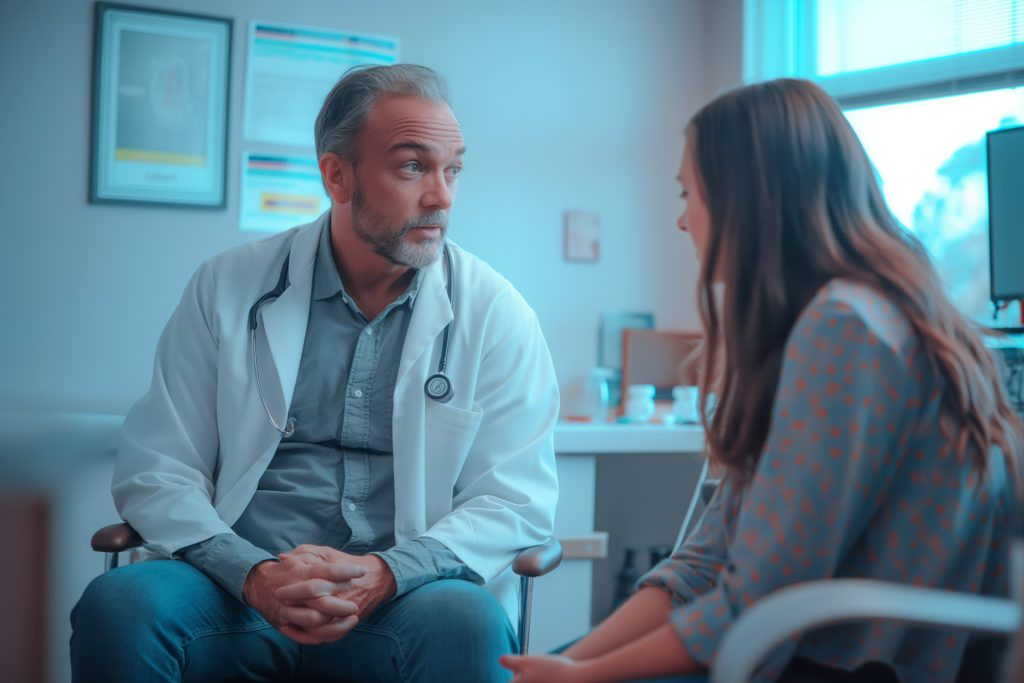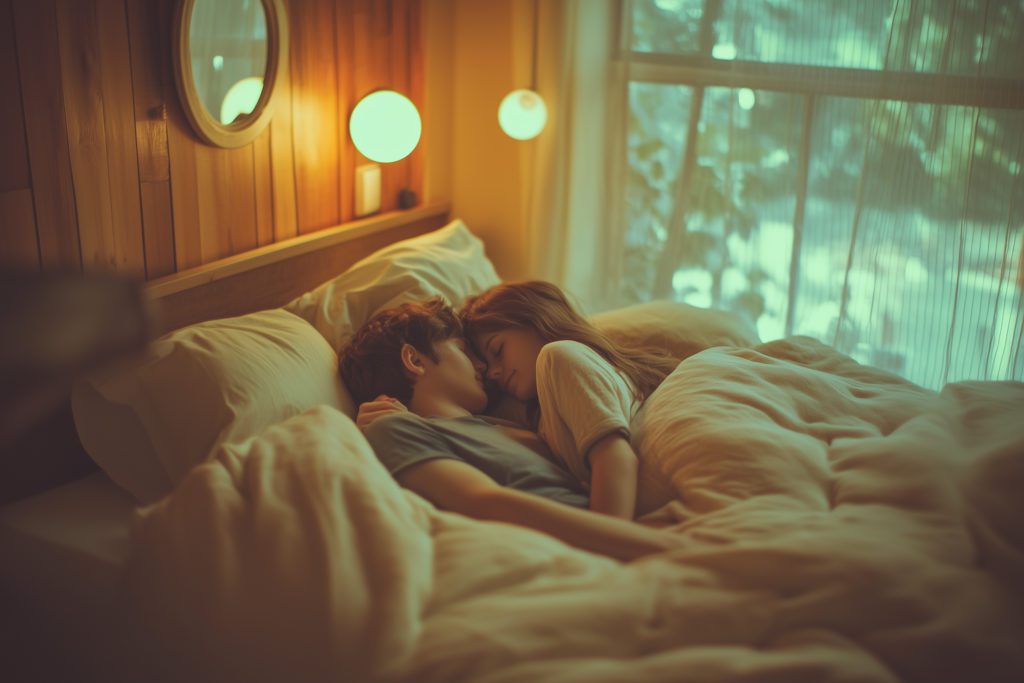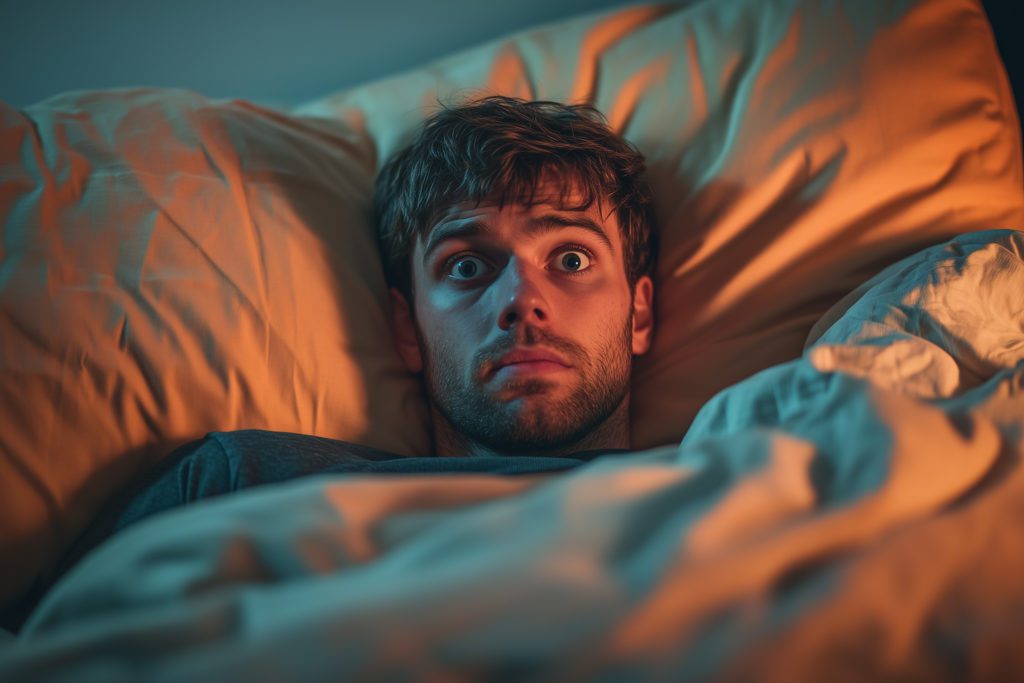
Sleep Disorders and Their Impact on Sexual Functioning
Learn how sleep disorders can affect sexual functioning and explore treatment methods for sleep disorders that can improve all areas of your well-being.

Are you struggling with all bedroom-related activities? We’re talking both the restful and the intimate, for if you’re feeling “down” in your sexual functioning, you may need to look to your sleep.
Sleep disorders can have both physical and mental ramifications that weigh on your sexual functioning, which can then influence your overall well-being. Keep reading, as we’re going to cover how sleep disorders may be affecting your time with your partner and what you can do to overcome it.
Can Sleep Disorders Affect Sexual Functioning?
Sleep is a crucial component of our lives, and not just for the boost we get to our energy from a full night of sleep. Sleep supports our immune system, lets our brain process the information from our day, and regulates our hormones.
With this wide-reaching impact of sleep, it should come as no surprise that anything that disrupts it, such as a sleep disorder, can wreak havoc on our bodies. In some cases, it may be your sex life that takes the hit. In fact, a 2023 review of 43 clinical studies confirmed that those with sleep disorders and poor sleep quality were at an increased risk of sexual dysfunction, no matter their gender.
Insomnia, which is one of the most common sleep disorders, can be a risk factor for sexual dysfunction in women. Erectile dysfunction, as well, has been linked to a lack of sleep and disrupted sleep, meaning even if you fall asleep without a problem, continually waking during the night can still affect your sex life.
How Do Sleep Disorders Influence Your Sexual Functioning?
While each sleep disorder affects the body in different ways, they share similar methods by which they may contribute to sexual dysfunction.
Reduces the Production of Sex Hormones
Studies have shown that insufficient sleep is related to a decrease in sex hormones, namely testosterone, which, while higher in men, is used (and needed) by those of both genders. Without enough testosterone, men can experience sexual dysfunction, while women can see a decline in libido, leading to a lack of desire to become intimate with their partner.
With many sleep disorders causing issues with getting enough sleep, low testosterone is a common problem for those with sleep disorders. For example, a study on sleep apnea, characterized by frequently interrupted sleep during the night, showed that up to 70% of men with sleep apnea had problems with sexual performance, and women also experienced sexual dysfunction and dissatisfaction.
Promotes Development Due to Similar Biological Processes
It’s theorized that restless leg syndrome (RLS) can cause erectile dysfunction because both conditions have similar biological processes, including dopamine deficiency. So, if RLS already exists—along with dopamine deficiency—then it may be easier for erectile dysfunction to develop since one pathway to its development already exists. This connection may explain the increased risk of erectile dysfunction seen in those with RLS.
Increases Moodiness
Anyone who has had a poor night of sleep knows the moodiness and irritability that can occur the next day, which is decidedly not conducive to fostering a positive relationship. In fact, consistently getting too little sleep may cause cracks to form in a relationship, which may affect your sexual relationship and decrease your desire to engage in acts of intimacy.
Throws Off Your Circadian Rhythm
When you work nonstandard hours or cannot fall asleep each night (and sleep in later to compensate), your circadian rhythm can take a hit, which has been associated with a risk of sexual problems. In particular, studies have shown that the complications of a disrupted circadian rhythm, including hypertension, atherosclerosis, and hyperlipidemia, are also risk factors for erectile dysfunction, providing a possible link between disrupted circadian rhythm and sexual dysfunction.
Makes You Too Tired
Of course, beyond the ways that sleep disorders and their interruption of sleep may affect the process going on within your body, the tiredness that is characteristic of sleep disorders may also make you too tired to get intimate, which can lead to sexual difficulties. Ultimately, if all you’re thinking about is when you can fall asleep, your mind won’t be in the right headspace for sex, which means your body also won’t know that it’s go time.
Improve Your Sleep, Improve Your Sex Life
Sexual health is a vital component of a healthy lifestyle, but sleep disorders can cause a decline in multiple areas of our lives, sexual functioning being only one of them.
If you have a sleep disorder or suspect that you may have one, talking to your doctor to enquire about treatment is the most important first step. If you’ve already been diagnosed with a sleep disorder, following your physician-recommended treatment plan is crucial for improving your sleep and, as a result, your sexual functioning.
Treating your sleep disorder may require a medical device, such as a CPAP machine used to treat sleep apnea. This device helps to keep your airways open so that you don’t experience restricted breathing and the interrupted sleep that it leads to.
Some sleep disorders may be treated with medication. Restless legs syndrome can stem from a deficiency of the hormone dopamine, so drugs that increase dopamine may be prescribed to correct this. Muscle relaxants and medicines affecting the calcium channels in your body may also be prescribed for this sleep disorder.
Whether by itself or combined with the above sleep disorder-specific treatments, improving your sleep hygiene is often a vital component of any treatment plan for sleep disorders. This includes adopting habits that promote a good night’s sleep, such as exercising during the day, listening to soothing music before bed, and optimizing your bedroom for sleep. By adopting these sleep-friendly habits, sleep disorders associated with a struggle to fall asleep, such as insomnia, may improve.
If you’ve implemented the above tips and are still having problems with your sexual functioning, reach out to your doctor. They can help you determine the cause of your sexual dysfunction and direct you to the best form of treatment.
FAQ
Can medications for sleep disorders affect sexual function?
Yes, some medications used to treat sleep disorders, such as antidepressants for insomnia or dopamine agonists for restless legs syndrome, may cause sexual side effects. These can include decreased libido, erectile dysfunction, or difficulty achieving orgasm. However, alternative treatments or dosage adjustments may help mitigate these effects.
Are certain age groups more affected by sleep-related sexual dysfunction?
Yes, older adults are more prone to both sleep disorders and sexual dysfunction due to natural declines in hormone levels, changes in sleep architecture, and increased prevalence of conditions like sleep apnea. However, younger individuals experiencing chronic sleep deprivation can also suffer from reduced sexual desire and performance issues.
How does chronic fatigue syndrome (CFS) impact sexual function?
Chronic fatigue syndrome, often linked to poor sleep quality, can lead to severe physical exhaustion, reduced libido, and difficulty with arousal and orgasm. The persistent fatigue, along with associated pain and cognitive issues, can make sexual activity less desirable or physically challenging.
Does melatonin supplementation improve sexual function by enhancing sleep?
Melatonin can help regulate sleep cycles, but its direct effects on sexual function are not well established. Some studies suggest that better sleep from melatonin use may indirectly improve libido and performance.
Is there a link between restless legs syndrome (RLS) and sexual dysfunction?
Restless legs syndrome has been associated with sexual dysfunctions, particularly erectile dysfunction in men. Both conditions may share underlying mechanisms, such as dopamine dysregulation, which plays a role in movement and sexual function
Can frequent nightmares or night terrors impact sexual health?
Yes, recurring nightmares or night terrors, which are common in individuals with PTSD or anxiety disorders, can contribute to sleep disturbances, emotional distress, and increased fatigue. This can reduce overall interest in sex, disrupt intimacy, and increase the risk of sexual dysfunction.

Written by
Jessica G
Medical writer freelancer who has written hundreds of articles on varying topics. Masters of Engineering degree in Biomedical Engineering.
Download Pillow
Get help
Press & News
Legal
Connect
X (Twitter)
Company
Copyright © Neybox Digital Ltd.



